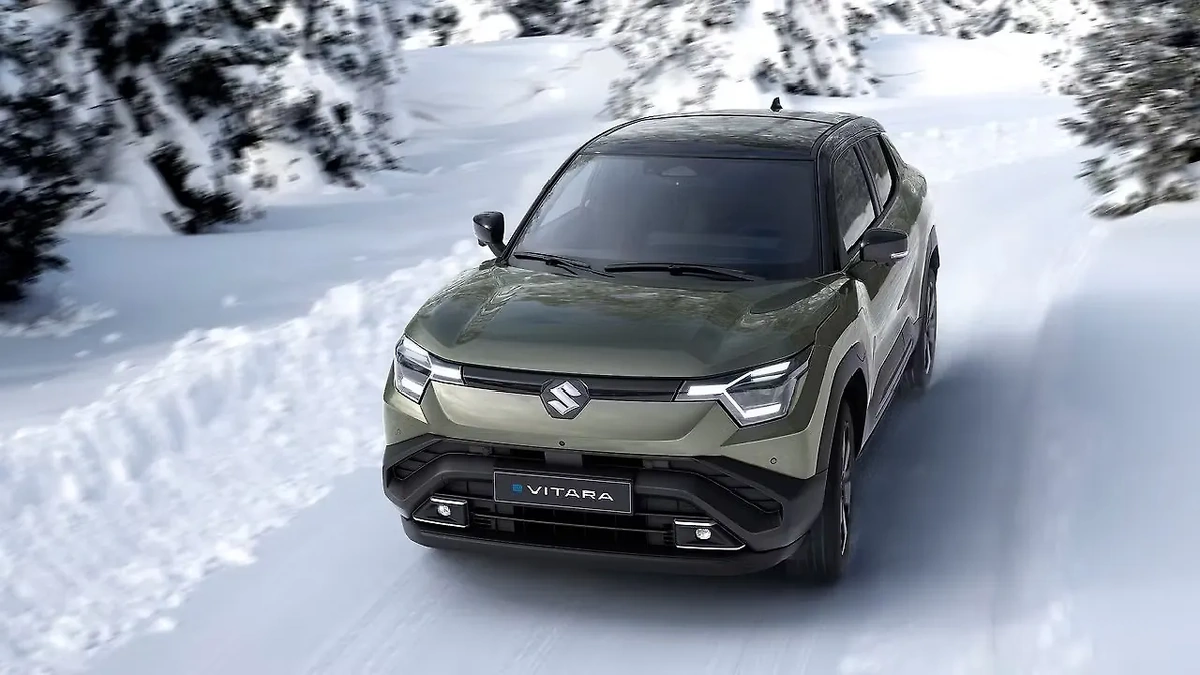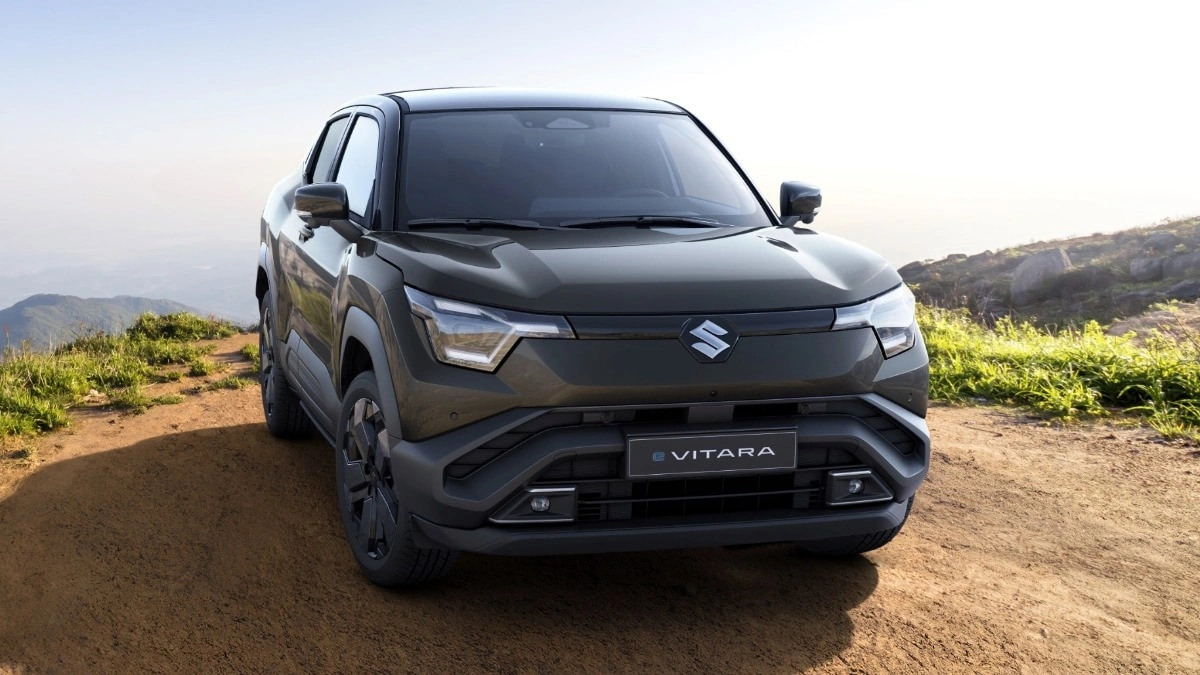The Maruti eVitara Price Isn’t Just a Number. It’s a Game-Changer. Here’s Why.
Let’s grab a virtual coffee and talk about the one question that’s buzzing in every Indian car enthusiast’s mind: What will the e vitara price be? It feels like we’re waiting for exam results, doesn’t it? Every auto forum, every WhatsApp group, every conversation is circling around this single, elusive number.
But here’s the thing, and this is what really fascinates me. We’re not just talking about another car launch. This isn’t just Maruti Suzuki adding another model to its already gigantic portfolio. Oh no, this is different. This is the undisputed king of the Indian car market, the company that put a car in every middle-class driveway, finally, finally stepping onto the electric playground.
And the price tag they slap on the eVitara? It won’t just be a price. It’ll be a statement. A declaration. It will be the number that tells us whether the electric dream is truly ready for mainstream India, or if it remains a premium, early-adopter’s game for a little while longer. This is about more than just a car; it’s about the next big turn in India’s automotive story.
The Elephant in the Showroom | Cracking the Code of EV Pricing in India

Let’s be honest for a second. The Indian EV scene right now is basically the Tata Nexon EV show, with some excellent supporting acts from MG and Hyundai. Tata did something brilliant: they hit a sweet spot of price, range, and form factor that resonated with Indian buyers. They proved there’s a real, hungry market out there.
But the big barrier the wall that keeps millions of potential buyers hesitating is still the upfront cost. A good, reliable family EV that you can take on a weekend trip without a full-blown panic attack (we call it ‘range anxiety’ for a reason) still starts north of ₹14-15 lakh. That’s a significant jump from the ₹8-12 lakh bracket where Maruti absolutely dominates with its petrol cars.
This is the puzzle Maruti has to solve. It’s what I call the “Affordability-Range-Trust Triangle.”
- Affordability: Can they price it aggressively enough to tempt their massive base of Swift and Baleno owners to upgrade?
- Range: Will it offer a real-world range that eliminates daily anxiety? We’re talking a certified range of 500+ km, which should translate to a comfortable 350-400 km in real-world conditions.
- Trust: This is Maruti’s trump card. The peace of mind that comes with a service center in every nook and corner of the country is invaluable.
The entire hype around the Maruti Suzuki eVitara hinges on its ability to nail all three corners of this triangle. And the price is the lynchpin holding it all together.
Maruti’s Big Gamble | What Goes Into the eVitara’s Price Tag?

So, why is this car, in particular, expected to be different? Because it’s not just a Maruti project. This electric SUV is born from a deep collaboration with Toyota, based on the global Toyota Urban SUV Concept. Think of it as two giants pooling their brains and resources. This partnership is the first clue to cracking the price code.
But the real cost of any EV is buried deep inside its floor: the battery. This single component can account for 40-50% of the car’s total cost. The eVitara is expected to come with two battery options, likely a smaller ~48 kWh pack and a larger ~60 kWh one. According to industry whispers, these batteries will be sourced from a massive plant in Gujarat, a joint venture between Suzuki, Toyota, and Denso. This is crucial. Localizing battery production is the only way to shield the car from import duties and volatile global supply chains. It’s Maruti’s secret weapon for an aggressive price in India .
And then there’s Maruti’s own superpower: an unparalleled mastery of the Indian supply chain. They can squeeze costs out of every nut, bolt, and plastic panel like no one else. This deep-rooted localization for everything other than the battery cells will be instrumental in keeping the final sticker price in check. It’s a complex calculation, one that involves global partnerships and local manufacturing prowess.
The Million-Rupee Question | So, What Will the eVitara Actually Cost?

Alright, let’s get to the main event. Cutting through all the noise, what is the expected e vitara price ? While the official numbers are locked away in a vault at Maruti HQ, we can connect the dots and make a very educated guess.
First, look at the competition. The undisputed segment leader is the Tata Nexon EV , which currently ranges from about ₹14.5 lakh to ₹20 lakh (ex-showroom). The upcoming Hyundai Creta EV and other rivals are also expected to play in this same ballpark. Maruti has to land its punch right in the middle of this ring.
I initially thought they might try to shock everyone with a sub-₹15 lakh starting price, but that seems unlikely for a car of this size and expected range. That would risk cannibalizing their own Grand Vitara. On the other hand, if they go much beyond ₹22 lakh for the top model, they lose their mass-market appeal.
So, here’s my prediction: The Maruti Suzuki eVitara range will likely start from ₹15-16 lakh for the smaller battery variant and top out around ₹21-22 lakh (ex-showroom) for the fully-loaded, long-range version.
This pricing strategy would allow them to bracket the Nexon EV perfectly, offering a compelling alternative backed by the massive Maruti service network. It’s aggressive but realistic, a price that says, “We’re serious about this.”
Beyond the Price | Why the eVitara Could Still Win (or Lose)

But let’s be clear, the battle won’t be won on price alone. Once the initial sticker shock (or delight) wears off, the conversation will shift. And this is where Maruti’s legacy comes into play.
The “Maruti Factor” is a real thing. It’s the trust built over decades. It’s knowing that even if your car breaks down in a remote town, there’s probably a Maruti service station nearby. This peace of mind is an intangible asset that no competitor can easily replicate. Many people will choose the eVitara simply because it’s a Maruti. It’s a decision that goes beyond just specs and features; it touches on big life choices, not unlike the canada immigration reality check many families face, where long-term security trumps short-term flash.
The product itself has to deliver. It can’t just be an electric appliance on wheels. It needs to have the space, comfort, and features that Indian families expect from a modern SUV. And finally, Maruti’s entry could be the catalyst that finally pushes the charging infrastructure conversation into high gear, much like how a sudden ksrtc bus strike karnataka reminds everyone of the importance of public infrastructure.
Your Burning Questions About the Maruti eVitara Answered
When is the eVitara launching in India?
While an official launch date hasn’t been announced, industry consensus points towards a launch in late 2024 or, more realistically, early 2025. Expect a big reveal around the festive season, with deliveries starting in the new year.
What will be the real-world range of the eVitara?
This is the key question! For the larger battery variant (around 60 kWh), expect a claimed range of over 500 km. The crucial number, the real-world range , should be around 380-420 km on a full charge, which is more than enough for most weekly commutes and weekend trips.
How will it compete with the Tata Nexon EV?
The eVitara is expected to be slightly larger than the Nexon EV, positioning it as a more direct rival to the upcoming Hyundai Creta EV. It will compete on three fronts: a competitive price, the unparalleled Maruti service network, and potentially a more spacious and family-oriented cabin.
Will there be a smaller, cheaper Maruti EV?
Absolutely. The eVitara is just the beginning. Maruti is widely reported to be working on a smaller, more affordable EV based on the eWX concept, which would be a true mass-market electric car. But that’s a story for after the eVitara has made its mark.
Is it worth waiting for the Maruti eVitara?
If you’re in the market for an EV in the ₹15-20 lakh budget and aren’t in a desperate hurry, it is absolutely worth waiting to see what Maruti brings to the table. The entry of such a major player will shake up the market, potentially leading to better products and more competitive pricing from all brands.
Ultimately, the buzz around the upcoming electric cars , especially the eVitara, signals a massive shift. The arrival of the Maruti eVitara isn’t just another product launch. It’s a litmus test for the Indian EV market. The price they announce will echo through the industry, setting a new benchmark and, quite possibly, unlocking the door to an electric future for millions of Indians. It’s the moment the revolution might just go mainstream.













